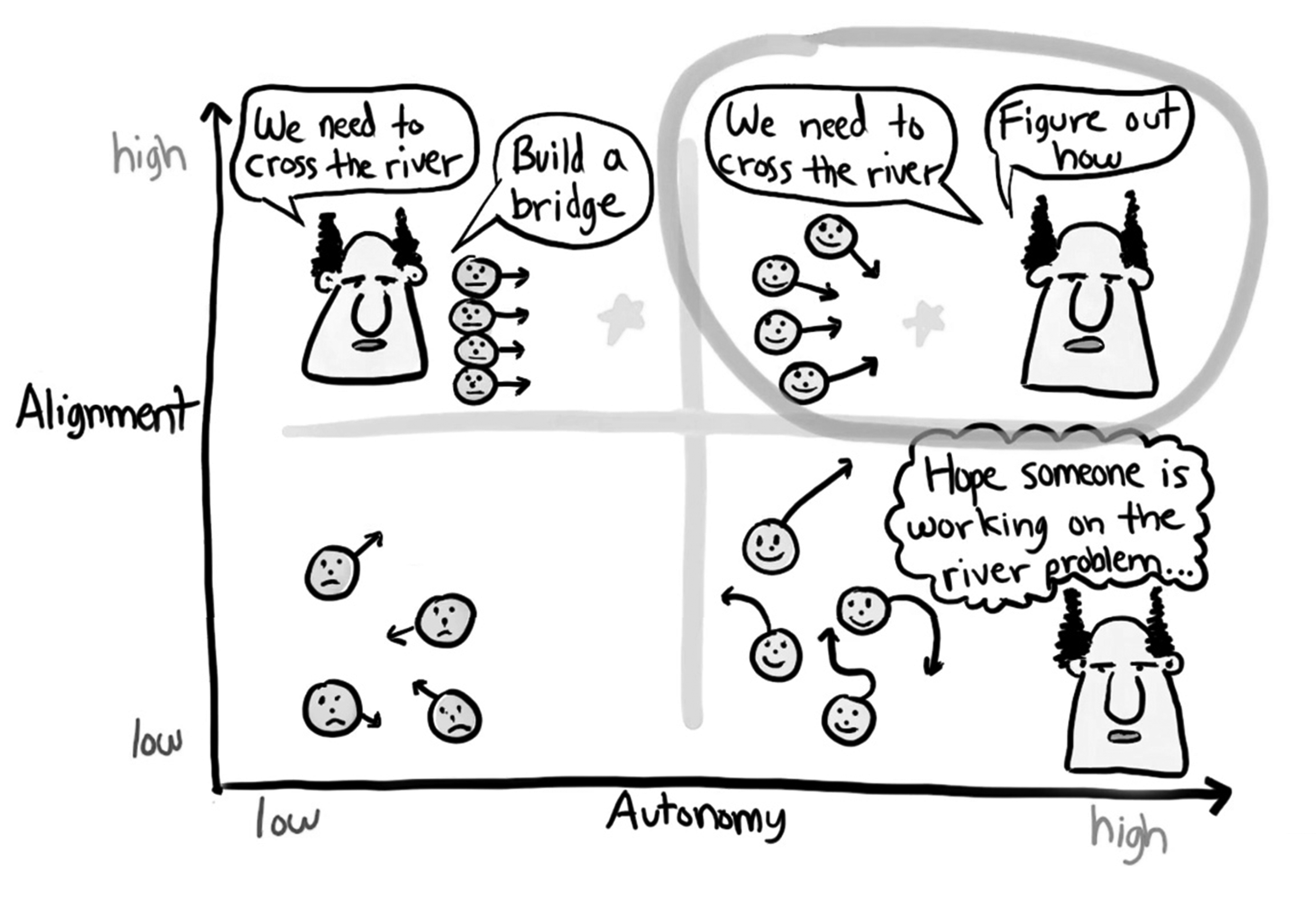Delegation Risks and Discussion Guide
Illustration by Henrik Kniberg
A legal team cannot thrive without effective ways to handoff—that is, to delegate—critical legal tasks. Delegation provides attorneys the space to own their work and to learn. Mistakes are a part of this learning process, so managers need to allow room for mistakes without putting the final work product at risk. This risk can be downright frightening. As attorneys, our business not only depends on serving our clients, but we have an ethical duty of care.
In Chapter 15 of All Rise, I explained how to find this balance. First, I explored the barriers to delegation—that is, what prevents attorneys from delegating in the first place—and how to navigate those roadblocks. But making the decision to delegate is only the first challenge. Next I discussed the handoff itself, with its own set of pitfalls. Together, these lessons provide a practical guide for managers to create the right level of autonomy on their teams.
This post assumes you are familiar with Chapter 15 and have simply come seeking a summary of the key handoff risks—and tips—for better delegation of legal work. Below is a summary, and I have included links to download this material as a handout. I have also included a link at the bottom to my “delegation checklist,” meant to guide the handoff conversation.
Handoff Risk #1: Delegating without context
Solutions to consider:
Discuss not just the task and matter but the client, practice group, and firm strategy
Handoff Risk #2: Delegating without guardrails
Solutions to consider:
Time estimates/time-boxing (e.g., “If you spend more than two hours, check in with me.”)
Scope constraints (e.g., issues to avoid, decisions that were already made)
Resource support (e.g., if needed, leverage paralegals, other associates, vendors)
Relief valves (e.g., reducing scope, reducing formality, requesting more time)
Also helpful: a “surface, don’t solve” rule
Handoff Risk #3: Delegating without prioritizing
Solutions to consider:
Discuss other priorities within the project
Discuss the person’s priorities outside the project
Talk about expected personal time or PTO constraints
Ask about other personal priorities and goals
Handoff Risk #4: Delegating to the same people
Solutions to consider:
Ensure balance across the team by tracking and reviewing assignments before delegating new tasks
Be aware of your own biases and “favorites,” and remember that a manager’s job is to teach
Handoff Risk #5: Not accounting for working style differences
Solutions to consider:
Ask the attorney to recap the assignment via email after the meeting
Ask how the attorney plans to approach the task, giving you a chance to hear the thought process (and spot issues)
Check in the next day after work has begun, asking about progress and offering to answer any additional questions
Avoid: “Do you have any questions?” Instead, try: “What questions do you have?”

